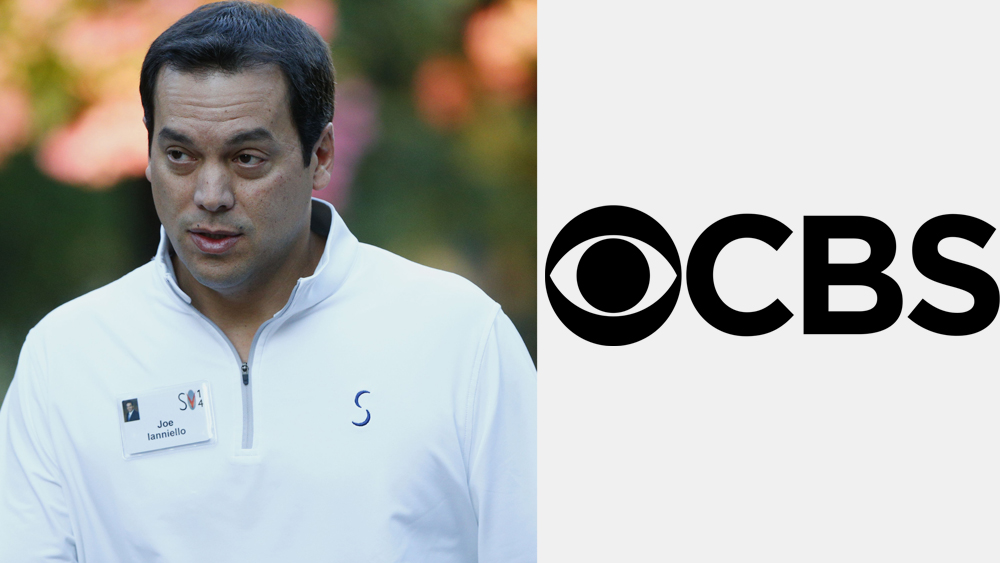Leslie Moonves’ Exit Puts Spotlight on Acting CEO Joe Ianniello
By Brian Steinberg
LOS ANGELES (Variety.com) – Joe Ianniello has been Leslie Moonves’ right-hand man at CBS Corp. for more than a decade, but he has mostly operated behind the scenes. Now he’s been thrust into the spotlight amid the company’s messy executive transition.
Ianniello, ’ chief operating officer, was named acting CEO Sunday after Moonves was forced out in the wake of another damning report published by the New Yorker, which detailed sexual harassment allegations leveled against Moonves by multiple women. The company also settled a bitter legal fight with its controlling shareholder, National Amusements, Inc., about the future direction for CBS.
The hope was that putting Ianniello in place would reassure investors who have been concerned about the clouds hanging over CBS. The company’s share price fell in early trading Monday, down 3%, after climbing last week on news of the settlement negotiations. Ianniello issued a memo to CBS staff early Monday, promising to foster a “safe and positive” working environment. “Never has it been more important for us to make it abundantly clear that CBS has a steadfast commitment to diversity, inclusion and a safe and positive working environment,” Ianniello wrote. “This is an integral part of our growth plan as together we unlock the immense talents across our entire employee base.”
While Moonves has become synonymous with CBS and its public profile as the home of broad popular hits ranging from “The Big Bang Theory” to “Survivor” to “NCIS,” it’s Ianniello who is widely recognized as the strategist who has worked diligently to put CBS on a path to the future. In his role as chief financial officer and later COO, he’s the business whiz who helped CBS divest its radio holdings; spin off its outdoor-advertising operations; and allocate capital for the company’s recent efforts to tamp down its dependence on advertising dollars and ramp up revenue from selling its programming overseas, providing content to stations and streaming outlets, and building digital operations. He helped Moonves and CBS’ digital team conceive the framework that took the network and its 200-plus TV station affiliates into the streaming arena with the launch of CBS All Access in 2014.
Ianniello is well-liked on Wall Street for his no-nonsense approach to delivering CBS’ financials every quarter and guidance where possible. He’s been as much of a cheerleader as his boss about the growth potential of CBS. And more often than not, the company has not only met its earnings projections but exceeded them.
“It’s really hard to fathom anyone else in a better position to take this job,” says Brian Wieser, a media industry analyst at Pivotal Research.
But the larger question for Ianniello is whether he will be in the job long enough to drop the “acting” part of his title. It’s no secret that NAI president Shari Redstone has pressed for the CBS board to consider a merger with Viacom, which NAI also controls, and for Viacom CEO Bob Bakish to be tapped to succeed Moonves.
The possibility remains that Ianniello is “just going to hold the baton for a short period of time to assure day-to-day continuity,” says Tuna Amobi, a media analyst with CFRA Research.
CBS declined to comment. A spokesman for the company’s board of directors did not respond to a query seeking comment.
Wall Street analysts say they need more detail about whatever agreement is struck between CBS and its controlling shareholder to settle the litigation that erupted over the CBS-Viacom merger considerations and other issues. Will the deal allow NAI to move forward with a plan to merge its two companies? Will it keep NAI from doing so — and if so, for how long? Will the CBS board be reshuffled to make it more independent or hew more closely to NAI’s desired strategy?
Ianniello has been deeply involved with some of CBS’ most important corporate maneuvers. He helped unwind the company from a previous tie-up with Viacom that in 2006 created two separate companies. He played a big role in helping CBS come to terms with the former Time Warner Cable in 2013 after differences over a carriage contract resulted in a month-long blackout of the network on the latter’s cable service.
More recently, he told Wall Street that consumers would not pay for dozens of different subscription-based broadband outlets after cutting their cable cord, but predicted CBS would be one of the options they would want. “I’m not sure there are going to be 30 direct-to-consumer channels that are going to be out there. There will be some sort of oligopoly at the end of the day and we’d like to think that we’ll be one of them,” he said at an investor conference in March, noting that media companies were in “an arms race.”
Detractors might suggest Ianniello doesn’t have as finely honed an eye for content as CBS’ current leader. But there are others at the company who have studied Moonves over the years who already work in that area. In 2018, having top content is paramount, but so too is building the pipelines to exploit those programs around the world.
Investors seem willing to give Ianniello a chance, even if CBS’ path ahead remains hazy. “It is a very unusual situation,” says Wieser. “To call it suboptimal is generous.”

